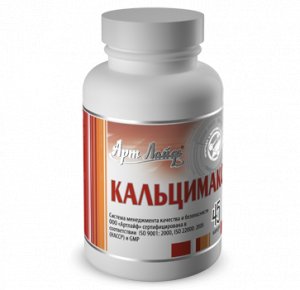Calcium in dentistry

The importance of calcium in the body is large. 99% of its amount is concentrated in
bones and teeth: mainly in the form of crystals of apatite, hydroxyapatite, carbonate, fluorapatite, hlorapatita etc. His greatest amount (90%) is in the tooth enamel. The main components of them are vosmikaltsievy hydroxyapatite and phosphate. An important indicator of the enamel is the ratio of calcium and phosphorus. Based on studies conducted in. K. Leontiev (1978) found that the ability of hydroxyapatite to resist the action of acid, and hence the development of caries, will depend on increasing the ratio of Ca / P as compared with the minimum (1.30). Thus, the higher this ratio in the enamel, the greater its resistance to acid destruction. One of the most important discoveries in recent years has been the finding that, while not an active structure, tooth enamel, however, is constantly in the process of dissolution (demineralization) and capacity (remineralization). Important role in the process of rebuilding the tooth enamel are mineral substances contained in saliva. In contact with the teeth from saliva are two minerals: phosphorus and calcium.
They get on the tooth enamel and remineralization process (enamel restoration) begins. The presence of fluoride in the oral cavity contributes to its development. Capacity-layer minerals can lead to the disappearance of white spots on teeth, which are the precursors of tooth decay. Thus, in the prevention of dental caries and its complications is a great role for calcium supplementation associated with the fact that the daily demand for it for an adult 1200 mg, 800-1000 mg for children. Approximately the same amount of calcium salts derived from the body and, therefore, must re-enter there with food.
From all that has been said you can draw some conclusions: the reception with a dentist for patients with multiple, secondary, recurrent caries should be prescribed calcium preparations in complex with a professional cleaning and prevention of various local ftorlakami and gels (biflyuoriz-12, flyuokal) completed application, using modern GLASS materials for the closure of cavities (kemfil, kemfleks, deneplay), which may produce ions of calcium and fluorine directly into the tissues of the tooth and oral cavity. The result is a smaller plaque, as ftoridsoderzhaschie supplements prevent the development of caries and contribute to the destruction and removal of plaque. I appoint KALTSIMAKS of Artlife company 1-2 capsules per day for 1 month to 7 years. In individuals teach proper oral health. Assign a preventive examination in 2-3 months. If there is a recurrence of caries, reappointed calcium preparations on the same scheme. Similar courses should be prescribed to patients at risk for calcium deficiency: thyroid disease, cardiovascular pathology, blood diseases, pregnant and lactating women, persons taking drugs, putting out calcium from the body, such as diuretics, and others. If there is an initial surface caries, a preventive measure should be taken KALTSIMAKS 1 capsule a day after meals for 1-2 months 1 every six months. After the formation of milk bite appoint KALTSIMAKS from 4-5 to 6 years, 1 capsule every other day for a month for children with I-II degree of activity of caries. For children with III degree of activity of caries recommend acceptance KALTSIMAKSA 1 capsule 1 time a day after meals for 2-3 months, training 2 times a year. In periodontal disease, with symptoms of osteoporosis, especially in periodontitis in the complex treatment using KALTSIMAKS, up to 3 capsules per day during the month.
